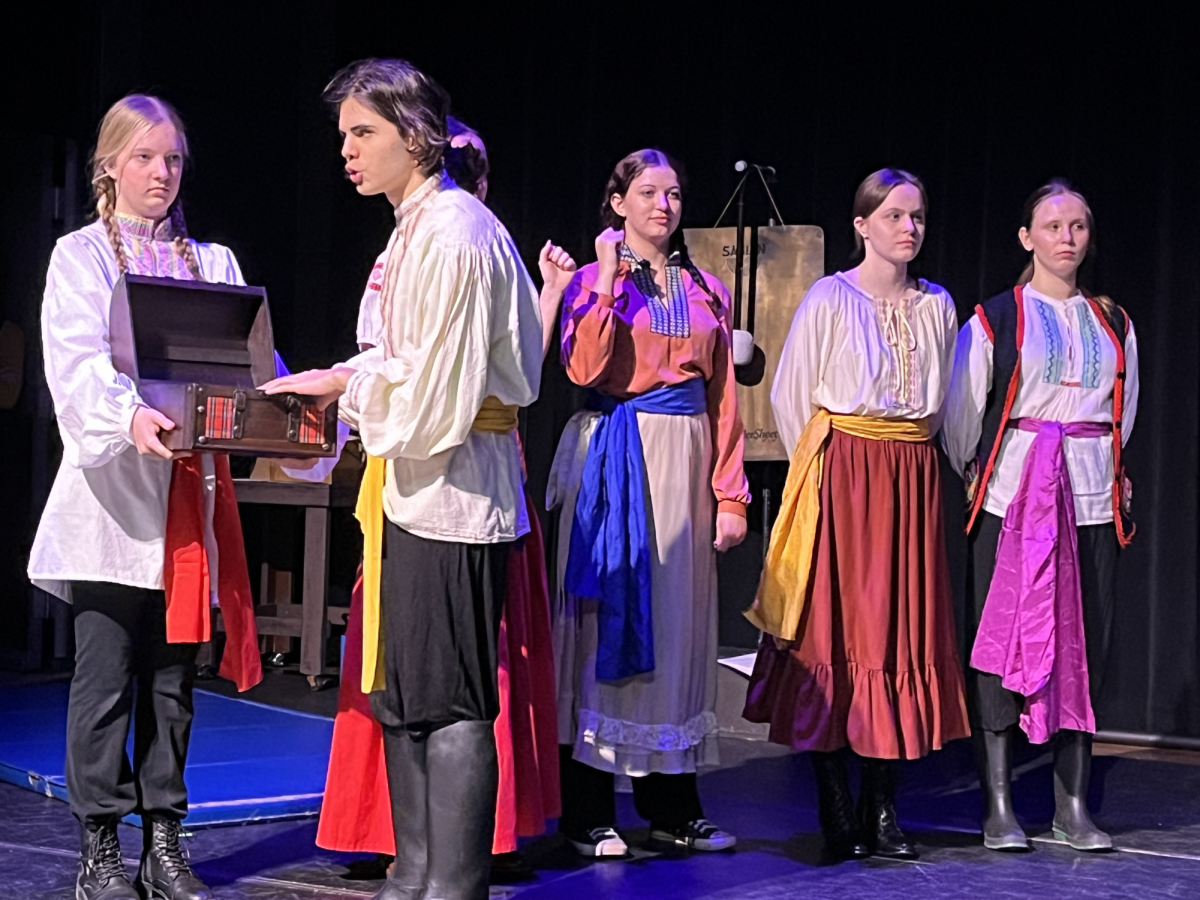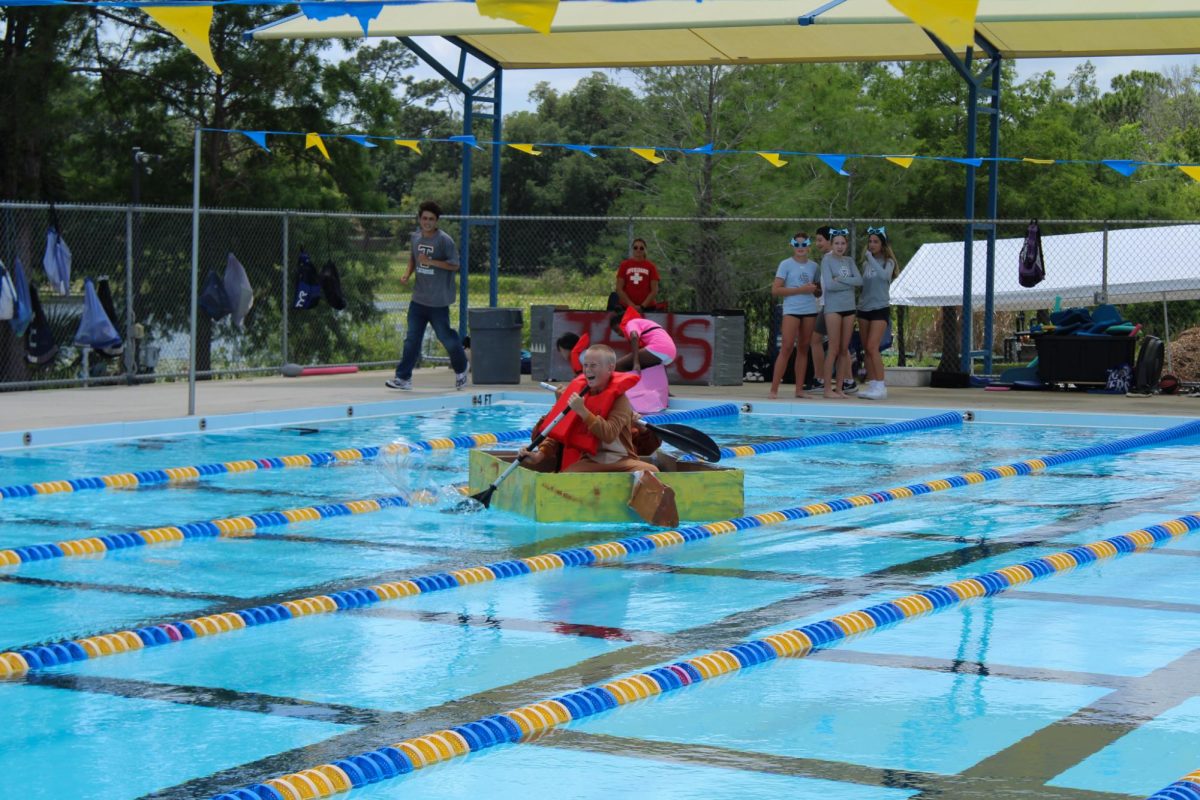“Crime and Punishment, A Comedy” is a whimsical play through the hallways of justice. Rodion Raskolnikov, the poverty-stricken main character, goes on an emotional yet comedic journey to retrieve his law diploma in Russia. It is a stage play full of emotion and engaging tales. In one of her last performances before graduation, senior Lauren Lemieux plays Raskolnikov and said it was an exciting and creative play to produce. Janine Papin, the Fine Arts Department Chair and the director of the production, talks about the overview of the production.
“The company was a traveling troop of Russian actors, and they were telling the stories,” Papin said. “So all they had with them was a cartload of props and everything else they created from their bodies.”
Lemieux and Papin expressed their satisfaction with the smoothness of the production process. Papin highlighted how everyone brought their ideas and creativity for props to the table. This made the process more straightforward and the final result richer by bringing depth to the story.
“We had four very lifelike puppets that were rigged,” Papin said. “The puppet’s heads [were made by the stagecraft class,] the bodies were made by me and my 8th grade theater class.”
Lemieux describes how there is more to their parts in plays than just acting. While practicing and preparing for the play, Lemieux deepened her connections with her classmates and friends.
“I enjoyed the people,” Lemieux said. “It’s enjoyable to hang out with everyone after school and make this kind of art with them.”
Papin emphasized that acting is not just acting out feelings or thoughts but fully embracing the character. To do so, Papin brought in accent professor and dialect coach Ginny Kopf from Valencia College. Last year Kopf coached Lemieux with a Scottish dialect for Silent Sky. To help, she made custom videos to help each student master their accent. Lemieux admitted the Russian accent heard throughout the play was relatively easy to master thanks to Kopf’s video, although it may be harder for beginners to portray accurately.
“I brought her in in the past when we’ve done shows that have required a dialect, and so, she worked with them on the Russian accent,” Papin said. “She was here once, and we recorded her work, the practice drills, and then she helped two of the students who had a lot of dialogue by recording their lines so they could practice.”
Papin explains how some of the props and clothing were made. With the help of stagecraft teacher Kimberly Giovanoli, she taught many students how to sew.
“Mrs. Giovanoli was wonderful at teaching some of the students how to sew,” Papin said. “[They made some of the Russian shirts] and some of the shirts we already had, and we augmented them with decorations to make them look more Russian.”
Without a stage, every feature becomes important in a play. When a production relies on only a cartload of props, the importance of each item is boosted. The props aren’t only objects, but rather symbols and additions of the characters themselves. Through these meticulously chosen details, the life of the play comes alive.













